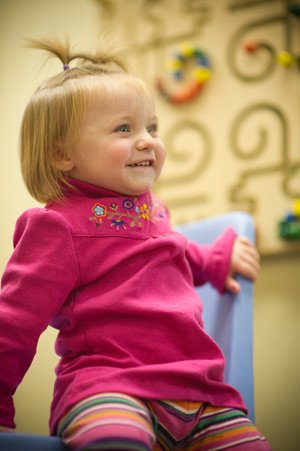Two Year Visit
Printable Info Sheet
Important Immunizations

Feeding
Your two year old should be getting 20 -24 ounces of low fat milk per day. Limit juice to about 6 ounces a day. Continue to eat meals as a family. Offer nutritious snacks between meals, including fruits and veggies. Your child’s appetite may vary from day to day. Forcing him/her to eat will be counter-productive, rather allow your child to refuse foods. Avoid using a substitute “favorite food” for those that have been served as this habit may foster pickiness.
Continue to introduce new foods to your child. Avoid “choke foods” and big fish like tuna and shark.
Oral Health
Use a toothbrush to clean your child’s teeth with non-fluoride toothpaste. Your child should be getting fluoride, either from your tap water or as a prescription supplement. Schedule a first dental appointment.
Sleep
Your child may be ready to leave his/her crib and sleep in a bed. Resistance to bedtime may persist, but continue with a night time routine, including putting him or her to bed awake.
Night terrors- a sleeping child screaming out in the middle of the night- are common at this age, as are nightmares.
Safety
Continue to supervise closely. Assess your child’s “drowning risk”. such as access to toilets, tubs, pools. Use sunscreen daily. Your child needs to be in an appropriate forward facing, five point harness, car seat, the rear seat being the safest location. Test smoke detectors and carbon monoxide detectors routinely. Maintain a smoke free environment. Use bike helmets. Be sure poisons, medicines, matches, and weapons are locked up. New Hampshire’s poison control number is 1800 222 1222.
Activities
Singing songs, reading interactively, coloring, finger paints are activities two year olds enjoy. Allow for exploration and large muscle group physical activity. Teach your child self care and self quieting behaviors.
Two year olds learn by modeling, so be a good role model, display good manners, use proper speech, be kind respectful and loving.
Behavior
Two year olds have difficulty sharing. Encourage sharing while having some “not to be shared toys”. Set limits and be consistent with boundaries. Listen to and be respectful of your child’s thoughts and feelings.
Help him or her learn what sadness and anger are and help with anger resolution and difficult interactions between siblings or peers.
Role model healthy habits. Show your child affection. Play with your child.
Signs of illness
Signs of illness may include fever, failure to eat, vomiting, diarrhea, irritability, lethargy, rash, or cough. If your child experiences one of these symptoms or you are concerned, feel free to call our office for advice or an appointment.
Developmental Milestones
Verbal: 2 word phrases (me do, ball uh-oh), 50% understandable by stranger
Social: Imitates adults
Gross motor: Takes stairs on step at a time
Fine motor: Holds crayon with finger and thumb